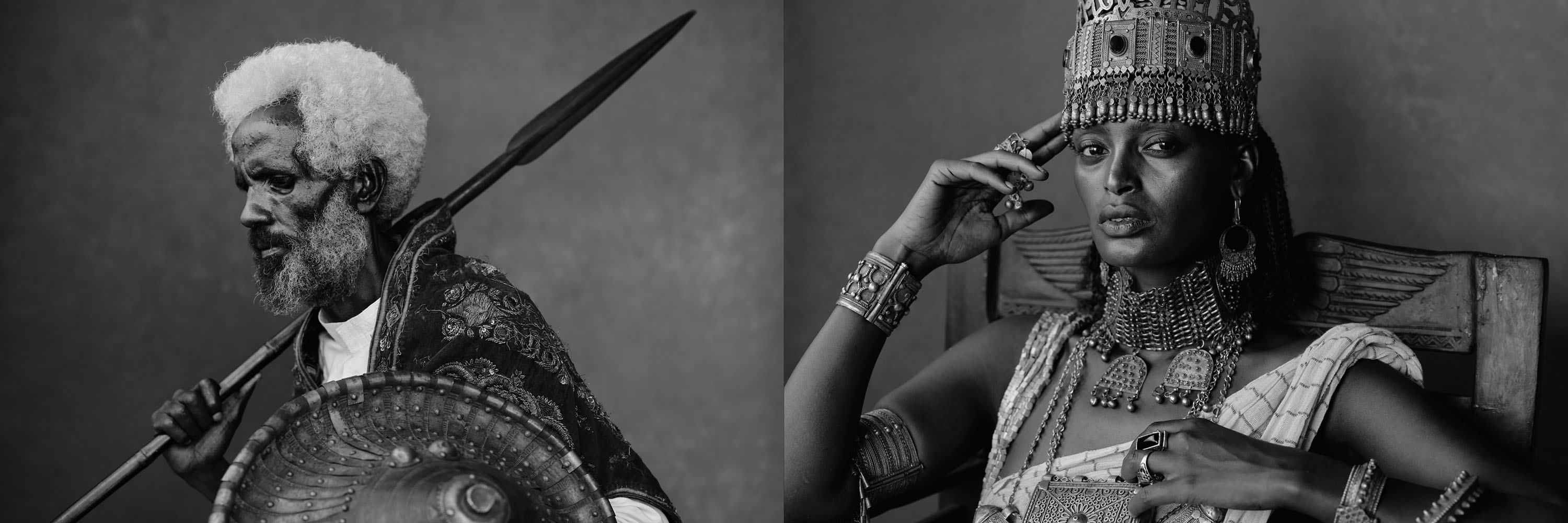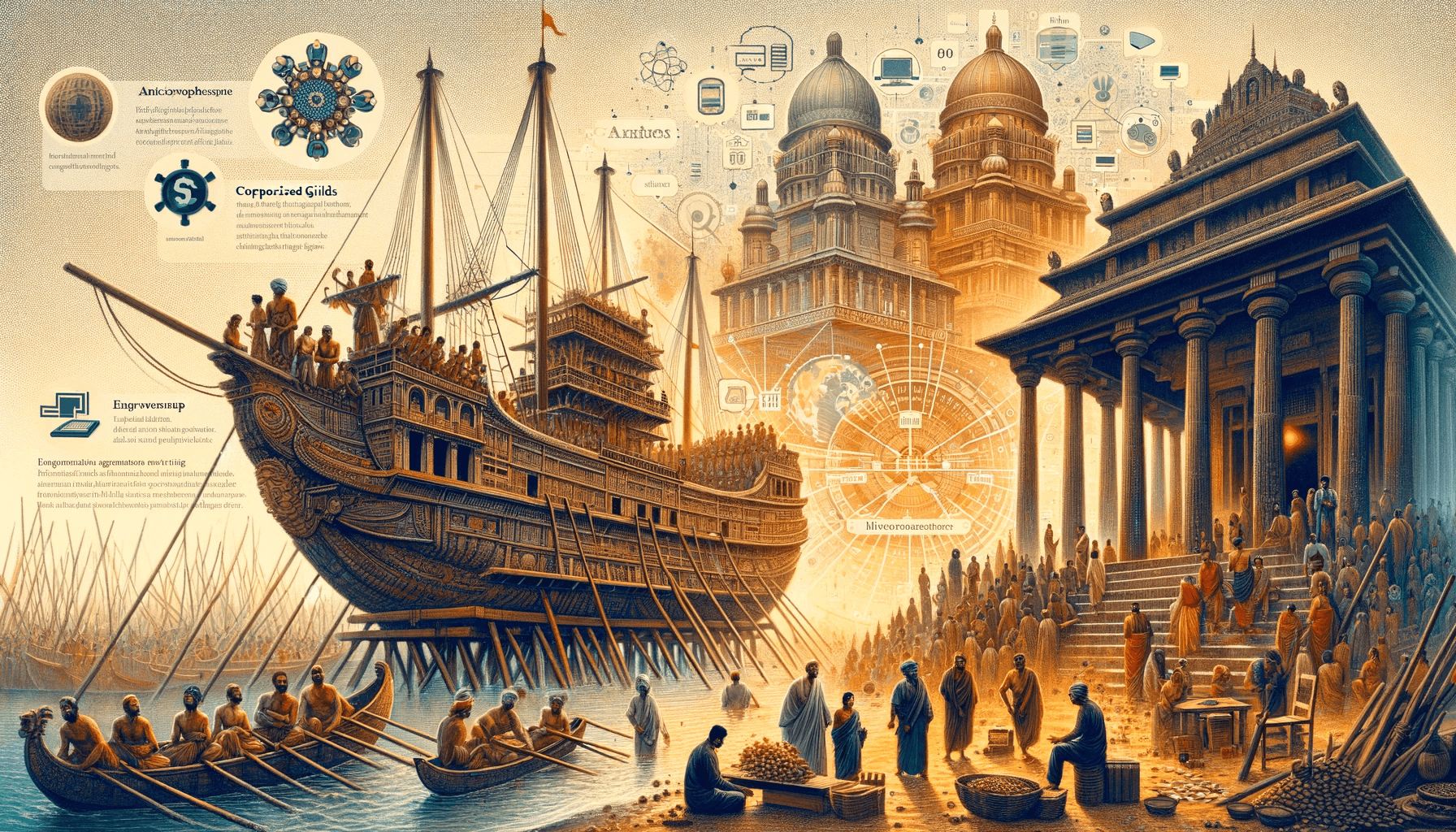Introducing Navigator-Thinking
Introducing Navigator-Thinking



In today's world, businesses need a new compass to navigate the currents of innovation. While IDEO's "design thinking" philosophy has been a powerful tool, it can sometimes feel limited in its scope. Enter Navigator-Thinking, a holistic approach to problem-solving inspired by the wisdom of wayfinders across cultures.
Key takeaways:
Navigator thinking is a problem-solving approach inspired by "wayfinders" across cultures, going beyond individual user focus to consider the whole community.
It emphasizes cultural sensitivity, long-term vision, and adaptability for businesses to achieve Harmonized Growth™.
Harmonized Growth™ focuses on balancing community needs, internal culture, and emerging technology for sustainable business practices.
Navigator thinking helps businesses create solutions that are socially responsible, culturally aware, environmentally conscious, and tech-enabled.
This approach is particularly valuable for founders and executives to build businesses with a positive community impact, leveraging their experience and adaptability.
The Navigator Mindset: Beyond the User, Towards the Community
The navigator/explorer archetype is etched into the fabric of human history. From the Polynesians traversing vast oceans with celestial navigation (like our founder's ancestors), to the Arab nomads navigating the unforgiving desert, humans have always possessed the innate ability to find their way. Wayfinding is more than just physical navigation; it's a mindset of exploration, adaptation, and deep connection to the environment.
Watch this Google Talk from author Wade Davis, who talks about Wayfinders and why ancient wisdom matters in the modern world:
Navigator-thinking borrows from this rich heritage to offer a framework for innovation that goes beyond the individual user, especially when AI is making users distrust what they see, hear, and even feel online. It emphasizes:
Community Focus: Understanding the needs and aspirations of the entire community, not just a single user persona.
Cultural Sensitivity: Respecting the cultural context and traditions within which solutions will be implemented.
Long-Term Vision: Creating solutions that are not just effective in the short term, but also sustainable and beneficial for future generations.
Adaptability: Embracing the unknown and being flexible enough to course-correct as new information or challenges emerge.
Intuition: Learning how to feel more accurately, so discernment is refined in a world proliferating with AI.
Harmonized Growth™: Where Navigator Thinking Meets Business
Harmonized Growth™ is a philosophy from Faiā that encourages businesses to grow in a sustainable way, balancing the needs of external communities, internal culture, and the latest tools and technologies. Navigator thinking perfectly complements this vision by providing a framework for creating solutions that are:
Socially Responsible: They address the needs of the community and contribute to a more just and equitable world.
Culturally Aware: They are sensitive to local customs and traditions, fostering trust and collaboration.
Environmentally Conscious: They consider the long-term impact on the environment and promote sustainable practices.
Tech-Enabled: They leverage emerging technologies to create innovative solutions that benefit the community.
Imagine a business using navigator thinking to:
Design educational programs that are culturally relevant and address the specific needs of the community.
Develop eco-friendly products that minimize environmental impact.
Create a collaborative work environment that fosters employee well-being and innovation.
By adopting a navigator mindset, businesses can move beyond short-term profits and contribute to a future of shared prosperity.
Practical Applications for Founders & Executives
Navigator thinking can be a powerful tool for founders and executives looking to break free from traditional models and build businesses that contribute to more Harmonized Growth™. Here are some practical applications you can leverage:
Market Research & Customer Understanding
Go beyond demographics: Move past traditional market research and conduct in-depth community engagement sessions. Understand the hopes, dreams, and challenges of your target audience on a deeper level.
Focus on community needs: Don't just identify customer pain points, identify broader community needs that your business can address. Can your product or service empower local initiatives or contribute to a social cause?
Product Development & Design
Culturally-sensitive design: If your product or service caters to a diverse audience, involve people from different cultural backgrounds in the design process. Ensure your product is accessible and resonates with their needs.
Long-term impact assessment: Consider the environmental and social impact of your product throughout its lifecycle. Can you use sustainable materials? Can your product be easily repaired or repurposed?
Building a Strong Company Culture
Community-oriented hiring: Look for candidates who are passionate about your mission, within your own communities or networks, and committed to making a positive impact.
Collaborative work environment: Encourage open communication and teamwork across departments. Foster a culture of learning and adaptation, where employees feel empowered to share ideas and take initiative.
Marketing & Outreach
Storytelling and community engagement: Tell stories that resonate with the community and highlight how your business contributes to their well-being. Partner with local organizations to amplify your message and build trust.
Focus on long-term value: Don't just focus on short-term sales goals. Promote the long-term benefits your product or service offers to the community.
Additional Considerations
Leveraging experience: ex-corporate founders bring a wealth of experience to the table. Use your knowledge of traditional business models to create innovative and sustainable solutions.
Adaptability and resilience: The world of business is constantly changing. Navigator thinking's emphasis on adaptability will serve founders and execs well in navigating these changes.
By embracing these practical applications, Gen X founders and professionals can build businesses that are not only profitable but also contribute to a more just and sustainable future. Navigator-thinking empowers them to be more than just entrepreneurs, but also community leaders and navigators of positive change.
The Power of Many: Embracing the Global Navigator Community
Navigator thinking isn't limited to Polynesian traditions; it's a universal language understood by explorers from every corner of the globe. We invite you to join a growing community of businesses, entrepreneurs, and social innovators who are embracing this new approach to problem-solving.
In the coming weeks, we'll be delving deeper into the core principles of navigator thinking and how you can implement them in your own organization. Stay tuned!
In today's world, businesses need a new compass to navigate the currents of innovation. While IDEO's "design thinking" philosophy has been a powerful tool, it can sometimes feel limited in its scope. Enter Navigator-Thinking, a holistic approach to problem-solving inspired by the wisdom of wayfinders across cultures.
Key takeaways:
Navigator thinking is a problem-solving approach inspired by "wayfinders" across cultures, going beyond individual user focus to consider the whole community.
It emphasizes cultural sensitivity, long-term vision, and adaptability for businesses to achieve Harmonized Growth™.
Harmonized Growth™ focuses on balancing community needs, internal culture, and emerging technology for sustainable business practices.
Navigator thinking helps businesses create solutions that are socially responsible, culturally aware, environmentally conscious, and tech-enabled.
This approach is particularly valuable for founders and executives to build businesses with a positive community impact, leveraging their experience and adaptability.
The Navigator Mindset: Beyond the User, Towards the Community
The navigator/explorer archetype is etched into the fabric of human history. From the Polynesians traversing vast oceans with celestial navigation (like our founder's ancestors), to the Arab nomads navigating the unforgiving desert, humans have always possessed the innate ability to find their way. Wayfinding is more than just physical navigation; it's a mindset of exploration, adaptation, and deep connection to the environment.
Watch this Google Talk from author Wade Davis, who talks about Wayfinders and why ancient wisdom matters in the modern world:
Navigator-thinking borrows from this rich heritage to offer a framework for innovation that goes beyond the individual user, especially when AI is making users distrust what they see, hear, and even feel online. It emphasizes:
Community Focus: Understanding the needs and aspirations of the entire community, not just a single user persona.
Cultural Sensitivity: Respecting the cultural context and traditions within which solutions will be implemented.
Long-Term Vision: Creating solutions that are not just effective in the short term, but also sustainable and beneficial for future generations.
Adaptability: Embracing the unknown and being flexible enough to course-correct as new information or challenges emerge.
Intuition: Learning how to feel more accurately, so discernment is refined in a world proliferating with AI.
Harmonized Growth™: Where Navigator Thinking Meets Business
Harmonized Growth™ is a philosophy from Faiā that encourages businesses to grow in a sustainable way, balancing the needs of external communities, internal culture, and the latest tools and technologies. Navigator thinking perfectly complements this vision by providing a framework for creating solutions that are:
Socially Responsible: They address the needs of the community and contribute to a more just and equitable world.
Culturally Aware: They are sensitive to local customs and traditions, fostering trust and collaboration.
Environmentally Conscious: They consider the long-term impact on the environment and promote sustainable practices.
Tech-Enabled: They leverage emerging technologies to create innovative solutions that benefit the community.
Imagine a business using navigator thinking to:
Design educational programs that are culturally relevant and address the specific needs of the community.
Develop eco-friendly products that minimize environmental impact.
Create a collaborative work environment that fosters employee well-being and innovation.
By adopting a navigator mindset, businesses can move beyond short-term profits and contribute to a future of shared prosperity.
Practical Applications for Founders & Executives
Navigator thinking can be a powerful tool for founders and executives looking to break free from traditional models and build businesses that contribute to more Harmonized Growth™. Here are some practical applications you can leverage:
Market Research & Customer Understanding
Go beyond demographics: Move past traditional market research and conduct in-depth community engagement sessions. Understand the hopes, dreams, and challenges of your target audience on a deeper level.
Focus on community needs: Don't just identify customer pain points, identify broader community needs that your business can address. Can your product or service empower local initiatives or contribute to a social cause?
Product Development & Design
Culturally-sensitive design: If your product or service caters to a diverse audience, involve people from different cultural backgrounds in the design process. Ensure your product is accessible and resonates with their needs.
Long-term impact assessment: Consider the environmental and social impact of your product throughout its lifecycle. Can you use sustainable materials? Can your product be easily repaired or repurposed?
Building a Strong Company Culture
Community-oriented hiring: Look for candidates who are passionate about your mission, within your own communities or networks, and committed to making a positive impact.
Collaborative work environment: Encourage open communication and teamwork across departments. Foster a culture of learning and adaptation, where employees feel empowered to share ideas and take initiative.
Marketing & Outreach
Storytelling and community engagement: Tell stories that resonate with the community and highlight how your business contributes to their well-being. Partner with local organizations to amplify your message and build trust.
Focus on long-term value: Don't just focus on short-term sales goals. Promote the long-term benefits your product or service offers to the community.
Additional Considerations
Leveraging experience: ex-corporate founders bring a wealth of experience to the table. Use your knowledge of traditional business models to create innovative and sustainable solutions.
Adaptability and resilience: The world of business is constantly changing. Navigator thinking's emphasis on adaptability will serve founders and execs well in navigating these changes.
By embracing these practical applications, Gen X founders and professionals can build businesses that are not only profitable but also contribute to a more just and sustainable future. Navigator-thinking empowers them to be more than just entrepreneurs, but also community leaders and navigators of positive change.
The Power of Many: Embracing the Global Navigator Community
Navigator thinking isn't limited to Polynesian traditions; it's a universal language understood by explorers from every corner of the globe. We invite you to join a growing community of businesses, entrepreneurs, and social innovators who are embracing this new approach to problem-solving.
In the coming weeks, we'll be delving deeper into the core principles of navigator thinking and how you can implement them in your own organization. Stay tuned!
Related Blogs


The Cultural Impact of NFTs
See how Ethiopian artist collective Yatreda uses NFTs to preserve culture and what businesses can learn from their blend of tradition and technology.


The Cultural Legacy of Technology
Every great culture has its own way of doing things. We explore why each culture's design is a reflection of its unique worldview and way of life.


The History of Culturology
Culturology was coined by scholar Mikhail Petrovich Ryazanov, who emphasized the scientific study of culture as an independent and vital area of inquiry.